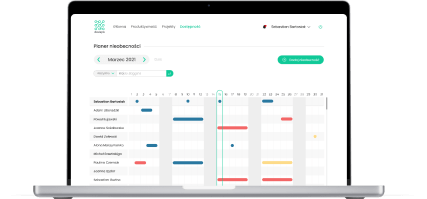

Telecommunication Network Operator Case Study
Platform Integration
Overview
To increase Internet coverage, network operators share their fiber-optic with service providers. Such collaboration requires managing multiple business and operational processes. Custom software solutions can facilitate such activities as they are created with specific needs and a broader perspective in mind.
See our Case Study about open platform for process simplification and telecom integration. We leveraged ODA (Open Digital Architecture) – a global program of the TM Forum initiative that enables end-to-end connectivity, interoperability and portability for telecom.
Overview

The business needs
Our client needed to:
- standardize the product catalog and ordering process by different fiber optic companies to simplify the connection of additional operators.
- to be able to easily work with hundreds of orders, billing systems and manage thousands of documents.
- automate a number of processes such as service call appointments and repairing defects.
Addressing these issues would improve stakeholders’ KPIs and simplify service management.
Our Challenge
The growing number of diverse processes performed by dozens of operators required a dedicated platform and ecosystem integration to facilitate wholesale management. The entire system had to be designed to support multiple third-party telecom operators at runtime mode.
Used technologies

IBM BAW

Java

Spring

Elastic stack




PostgreSQL

Jenkins


IBM BAW

Java

Spring

Elastic stack




PostgreSQL

Jenkins

Technical solution
We created a digital ecosystem for CSPs based on the ODA framework. It allowed us to deliver an IT solution that overall was simpler and cheaper to deploy, integrate and upgrade.
One of the ODA components that we have leverage in this project was the Open API specification. It enabled fast, repeatable, and flexible integration between operating and management systems, making it easy to create, build, and maintain complex innovative services. Interfaces are therefore technology-independent and can be used in any digital service scenario.
To ensure a stable and reliable access to data sources, we used Java with Spring Boot framework.
To implement the behavior of specific business processes, we used IBM BAW platform. It provides an extensive set of tools that can be utilized to design, develop, test and implement business processes. IBM BAW platform also assures features to inspect, track and manage deployed operations.
Implemented applications required proper logging features – to meet this requirement we applied Elastic stack which is perfect for tracking, monitoring and alerting.
The orchestrator of the system we used was a webMethods integration platform, which relies on both HTTP and SOAP protocols to communicate with multiple internal and external systems.
Our approach to the process
Analysis and development

We participated in the analysis and development of a complex multi-tenancy system designed to enable users to handle and monitor wholesale orders.
Our engineers were responsible for integrating the platform with existing CRM, Field Management and Multiple Relational Database Systems, so that processes were more agile.


Creation and modification

A major part of the project was creating and modifying orders related to building new fiber infrastructure, along with arranging installations, reserving needed equipment, etc.
Provided solution required to understand basic operational processes of an organization in order to streamline the procedures and boost cooperation.
Let’s talk about how we can tailor our process to your needs

Project team
52
Operators
6
Employees
28354
Code lines
The result
The project ended up delivering a solution that is very convenient for network operators, who want to wholesale. They can use the platform to automate business processes and easily work with thousands of orders, including end-to-end services: from placing an order, arranging calls with service technicians, submitting contracts, through installation, to repairing faults.
Open API specification allows new users who work with our customer to simply plug into system, facilitating business interactions. This enabled companies for better cooperation. This also results in increased access to the Internet, which is now widely available even in small Polish towns or rural areas.
Start a project with Devapo
Not everyone pays attention to details. We do.
Our client opinion
Thanks to Devapo’s efforts, all tasks were completed and worked smoothly. The team was always prepared to make changes, which made the client extremely satisfied. Moreover, they used scrum methodology, resulting in delivering projects on time.
VP, IBPM S.A.








